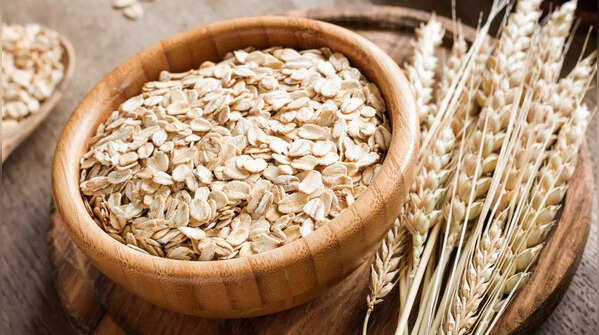
1/6
Are oats really healthy?
A popular health food, Oats are known for its high fibre and heart health benefits. From overnight soaked oats to oats cheela, there are a variety of ways to have this grain. However, they may not be suitable for everyone. Despite being gluten-free, oats can cause health issues in certain people due to specific sensitivities, conditions, or dietary restrictions. Here we list those who should avoid eating oats and why:

2/6
People with celiac disease (unless oats are certified gluten-free)
Oats are naturally gluten-free, but they are often processed in factories that handle wheat, barley, or rye, too. This leads to cross-contamination and can trigger severe immune responses in people who have celiac disease. Even a small amount of gluten can damage the intestinal lining of a person with celiac disease. This can lead to nutrient malabsorption, stomach pain, and long-term health issues. So, people with celiac disease can have oats only if they are certified gluten-free and processed in separate facilities. However, even then, some may react to a protein in oats called avenin, which mimics gluten’s effects in rare cases.

3/6
People who have oat allergies
While having oat allergy is rare, it is a serious condition that can affect both kids and adults. It is caused by the immune system reacting to proteins like avenin, which is found in oats. Oat allergy symptoms include skin reactions like hives, gastrointestinal discomfort, respiratory issues, and more. And so, people with oat allergies should completely avoid oats and oat-based products.

4/6
People with IBS
Oats are rich in soluble fibre, which helps reduce cholesterol and regulate blood sugar levels. But, people with Irritable Bowel Syndrome (IBS) can be triggered by the high fibre content in oats. In some people, oats can ferment in the gut and cause bloating, gas, and abdominal discomfort. Though people with IBS or those who have sensitive digestion can tolerate small amounts of oats, they should completely avoid having them in large amounts.

5/6
Diabetics
Despite being a complex carbohydrate, oats can significantly raise your blood sugar levels-- especially if eaten in large quantities. And so, having too much oats can adversely affect people with diabetes and those who are regulating their blood sugar levels. Consuming oats in moderation is the key here.

6/6
Those with mineral deficiencies
Oats have phytic acid, an antinutrient which can bind to essential minerals like calcium, iron, and zinc, thus reducing their absorption in the body. While it isn't harmful for healthy people, those who have mineral deficiencies or people who eat oats as a staple should have oats in smaller quantities.
Follow Us On Social Media

 4 hours ago
34
4 hours ago
34




























 English (US)
English (US)